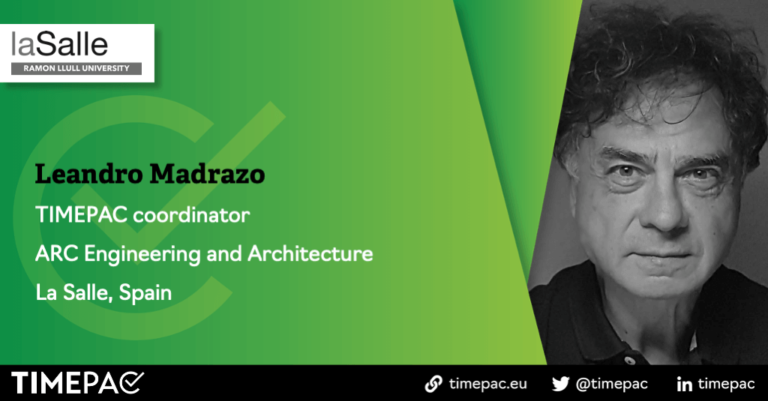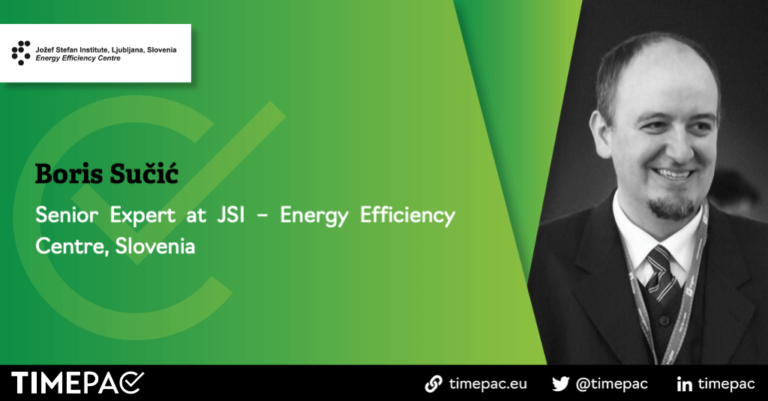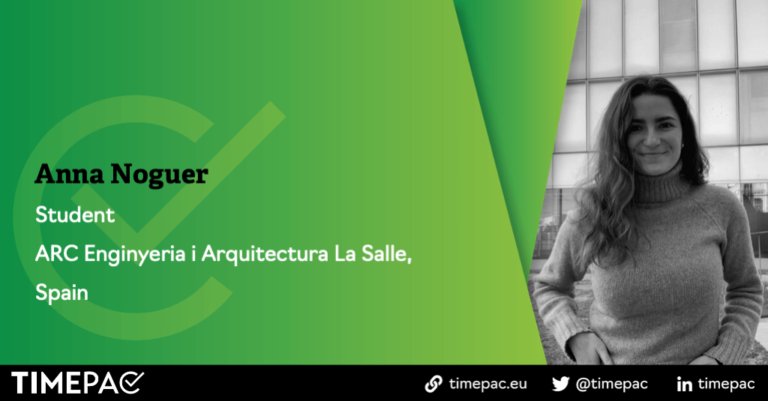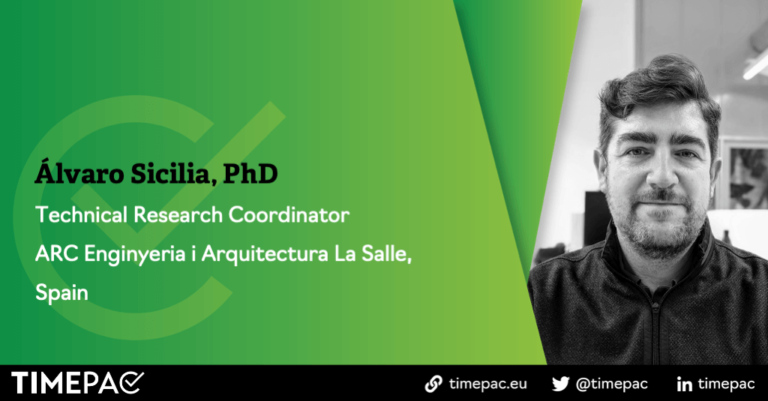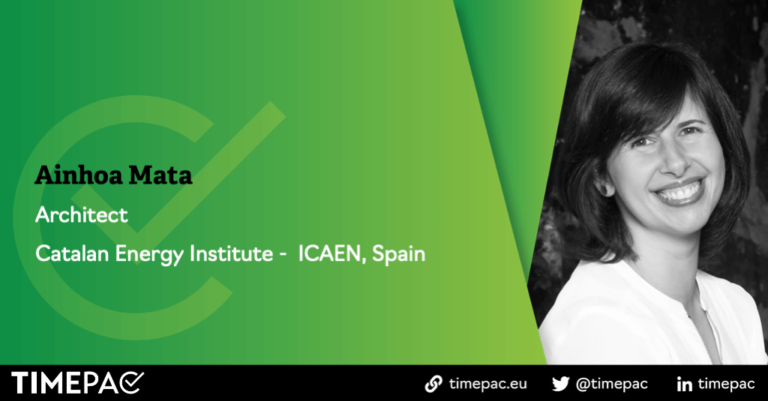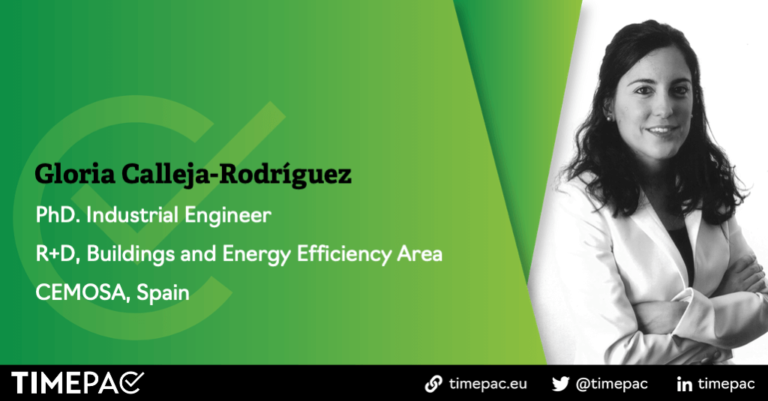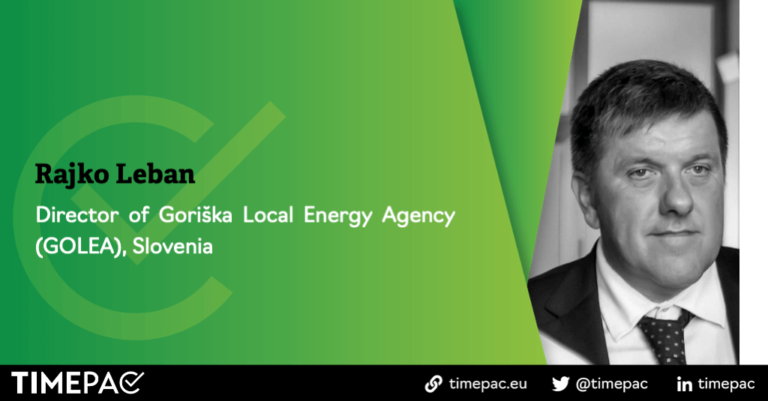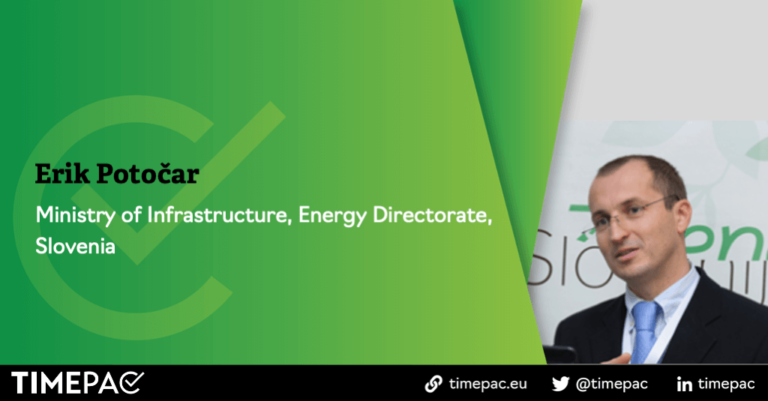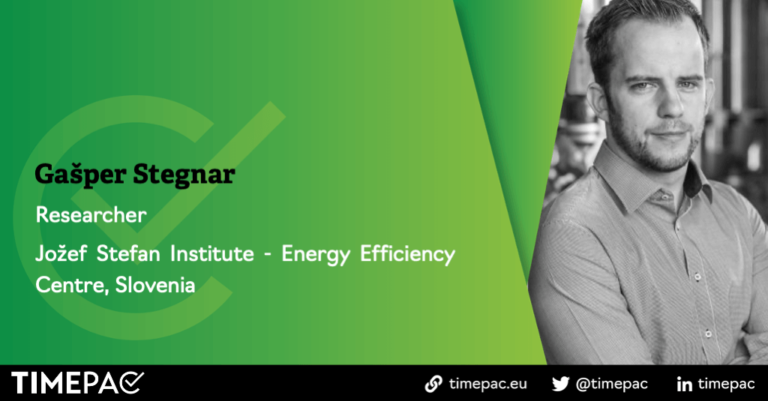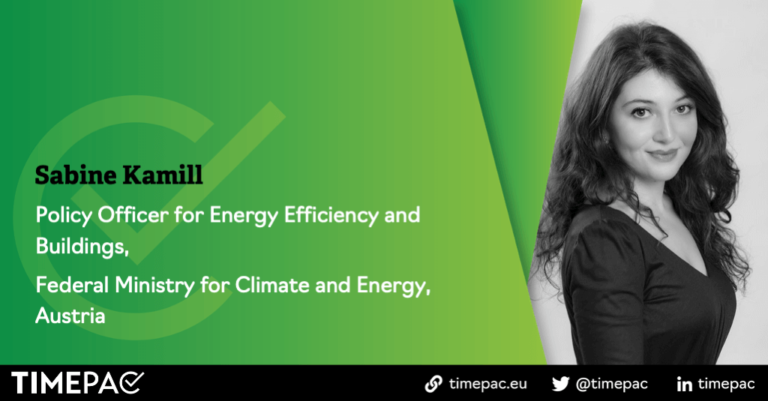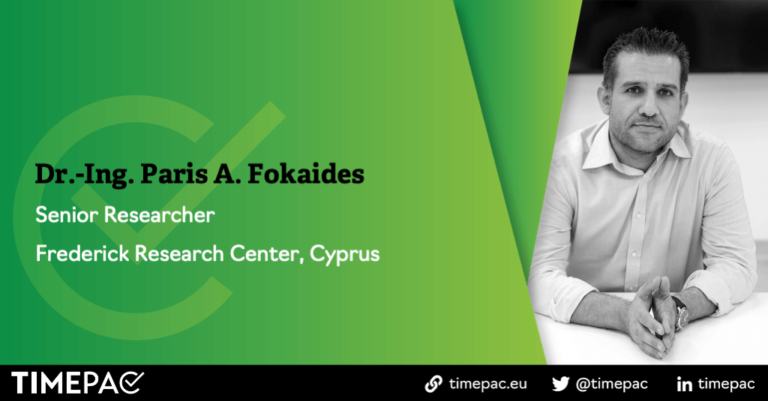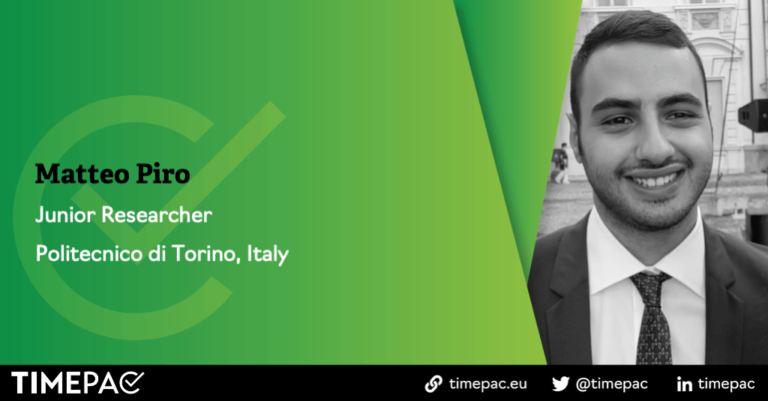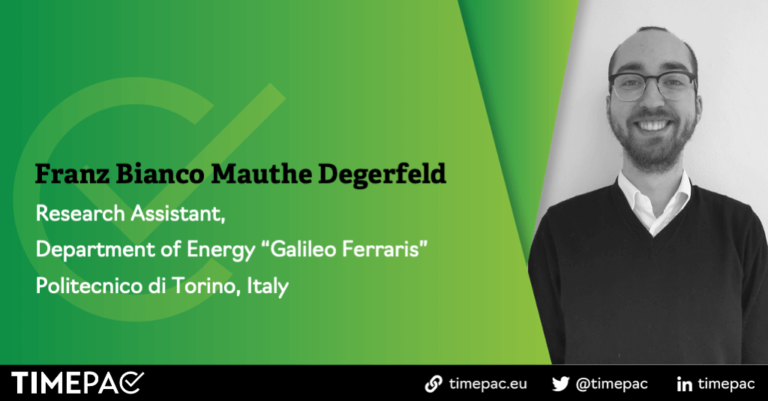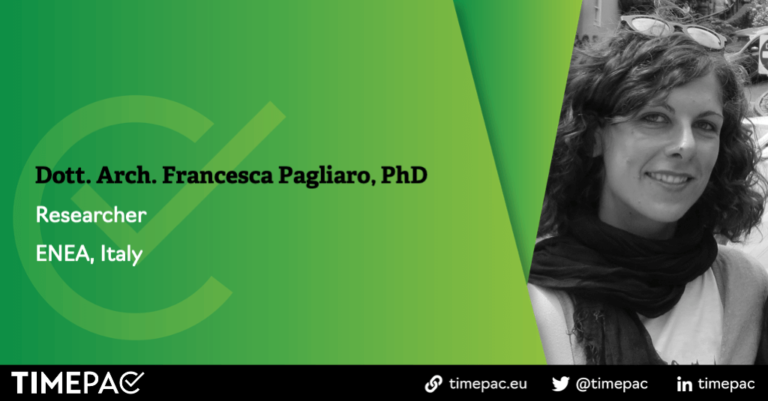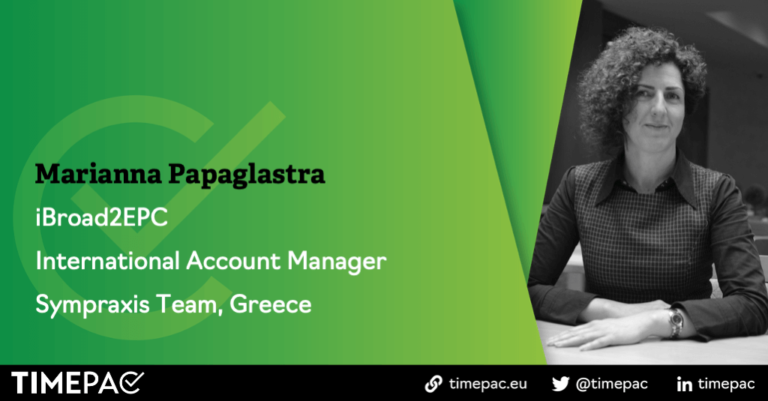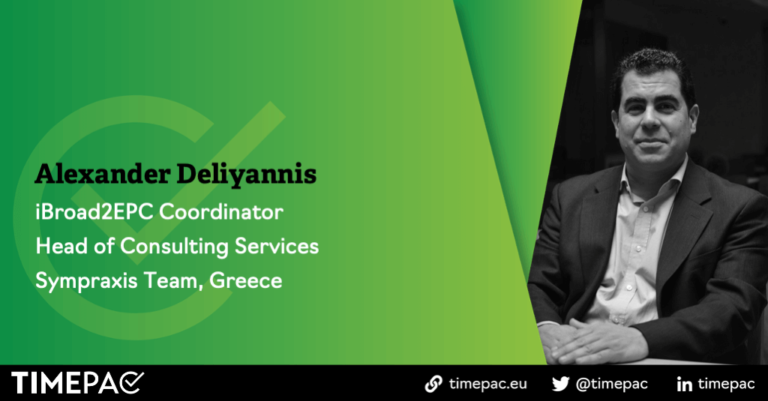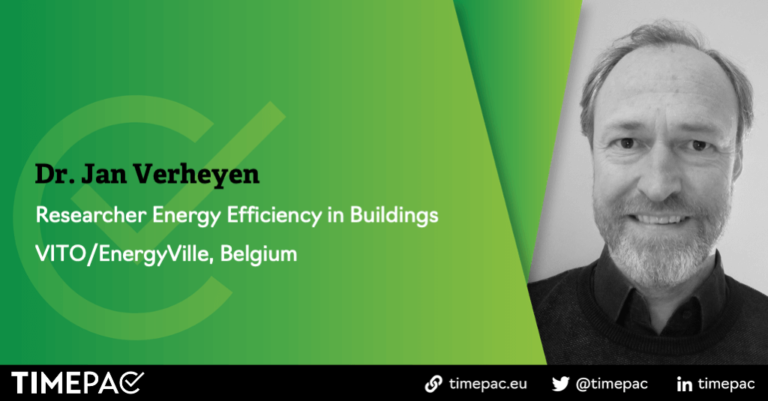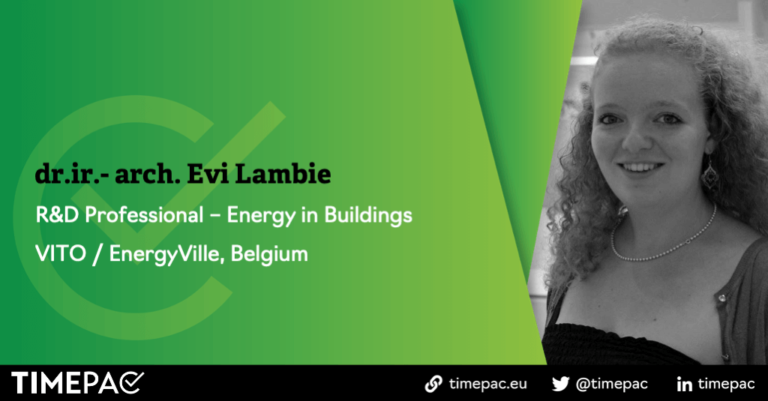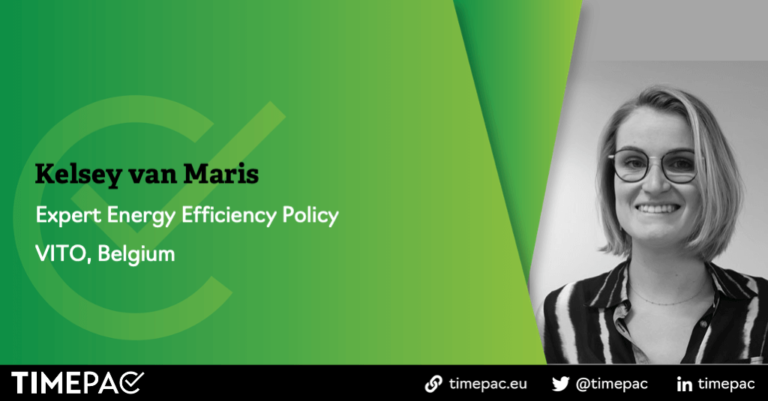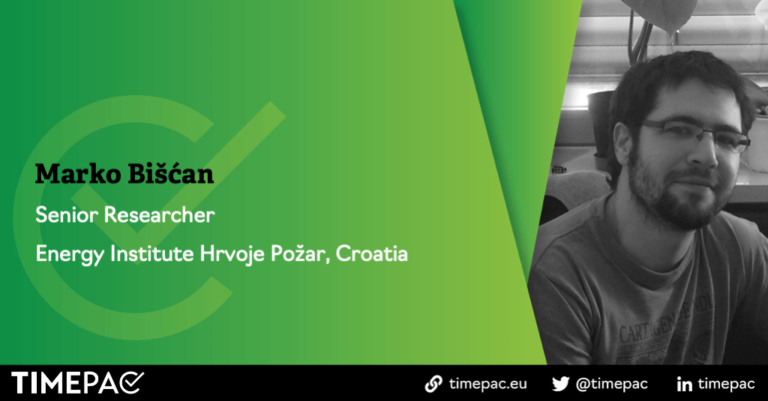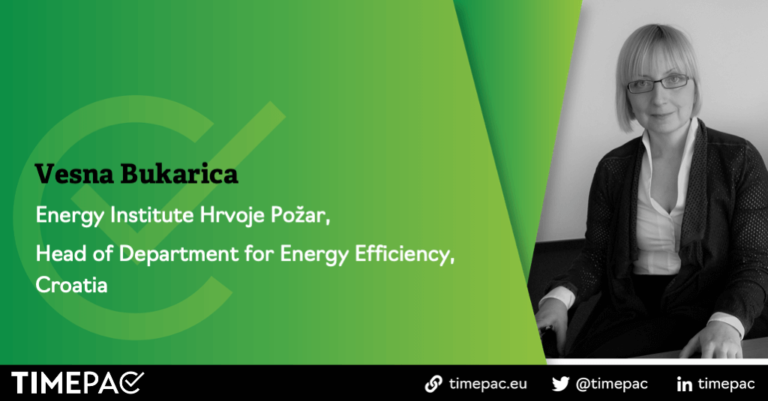TIMEPAC-2021
Dynamic EPC as enabler of Smart Energy Services – Energy Efficiency, Integration of RES in Buildings and Demand Response
Table of Contents
Start: December 14, 2021 11:30 am
End: December 15, 2021 2:00 pm
The TIMEPAC-2021 workshop is a follow-up of a series started in Barcelona in 2019 and will continue with two more workshops to be held in Italy in 2022 and in Austria in 2023.
The programme of TIMEPAC-2021 was divided into three sessions. Click on the sessions to download the presentations.
3 Sessions

Session 1 - Legislative context and requirements for deep renovation of EU building stock
The first session deals with the legislative context and requirements for deep renovation of EU building stock that have been set in National Energy and Climate Plans and National Long-Term Renovation Strategies.

Session 2 - Enhancement of EPCs with the integration of other data sources
The enhancement of EPCs with the integration of other data sources (BIM, sensors, smart meters, energy management, etc.) is covered in the second session.

Session 3 - Managing of active buildings and the use of innovative technologies in order to enable smart energy services
The third session is dedicated to the managing of active buildings and the use of innovative technologies in order to enable smart energy services.
When addressing smart energy services in buildings, monitoring and verification of savings achieved and other benefits, such as demand response, is crucial.
To meet these challenges, we will discuss innovative approaches for energy performance assessments in buildings, integration of smart readiness indicators and supporting mechanisms that will enable a more efficient use of existing data, technologies and services to promote environmental awareness and consumer engagement in energy efficiency.
Agenda
Tuesday December 14th, 2021
- 11.30 – 12.00 Registration and coffee/networking (hybrid)
- 12.00 – 12.10 Welcome and opening speech - Stane Merše, Head of the Energy Efficiency Centre, Jožef Stefan Institute, Slovenia
- 12.10 – 12.30 Presentation of the TIMEPAC project, goals and objectives – Leandro Madrazo, TIMEPAC coordinator, ARC Engineering and Architecture La Salle, Spain
- 12.30 – 14.00 Session 1 - Legislative context and requirements for deep renovation of EU building stock – Moderator: Jure Čižman, Jožef Stefan Institute – Energy Efficiency Centre, Slovenia
- 12.30 – 12.50: Energy renovation of buildings in the framework of the Slovenian NECP and Long-term renovation strategy – Erik Potočar, Ministry of Infrastructure, Slovenia
- 12.50 – 13.10: Austrian goals on deep energy renovation of buildings, policy instruments, major barriers and future challenges – Sabine Kamill, Federal Ministry for Climate Action, Environment, Energy, Mobility, Innovation and Technology, Austria
- 13.10 – 13.30: Croatian approach on deep energy renovation of building stock – Nevena Štrbić, Ministry of Physical Planning, Construction and State Assets and Vesna Bukarica, Energy Institute Hrvoje Požar, Croatia
- 13.30 – 13.50: The role of EPC data in the development and the assessment of energy efficiency policy - case study of SIAPE – Francesca Pagliaro, ENEA, Italian National Agency for New Technologies, Energy and Sustainable Economic Development, Italy
- 13.50 – 14.00 Discussion
- 14.00 – 14.30 Coffee break and networking
- 14.30 – 15.30 Session 1 - Legislative context and requirements for deep renovation of EU building stock – Moderator: Jure Čižman, Jožef Stefan Institute – Energy Efficiency Centre, Slovenia (continuation)
- 14.30 – 14.50: Setting Building Renovation Passports (BRPs) up for success: frameworks, measures and elements in support of stepwise deep renovation of the EU building stock – Alexander Deliyannis and Marianna Papaglastra, Sympraxis Team (iBRoad/iBRoad2EPC projects’ coordinator), Greece
- 14.50 – 15.10: ENERPAT/ENERHAT: Integration of EPC with other data sources to promote building retrofitting - Leandro Madrazo ARC Engineering and Architecture La Salle Ramon Llull University Barcelona, Spain and Ainoha Mata ICAEN Catalan Energy Institute Spain
- 15.10 – 15.30: Discussion and wrap-up of the Session 1
- 15.30 – 17.00 Session 2 - Enhancement of EPCs with the integration of other data sources – Moderator: Boris Sučić, Jožef Stefan Institute – Energy Efficiency Centre, Slovenia
- 15.30 – 15.50: Integrating EPC data with cadastre to foster residential building retrofitting programmes in the implementation of SECAPs – Álvaro Sicilia, Anna Noguer, ARC Engineering and Architecture La Salle, Spain
- 15.50 – 16.10: Data-driven Energy Performance Assessment Methods in the H2020-Project ePANACEA – Evi Lambie, Unit Smart Energy and Built Environment, VITO, Belgium
- 16.10 – 16.30: Enriched set of KPIs in Next-generation Dynamic Digital EPCs for enhanced quality and user awareness (D^2EPC) project – Paris A. Fokaides, Frederick University, School of Engineering, Cyprus
- 16.30 – 16.50: Analysis and validation of EN ISO 52016-1 and its Italian National Annex – Franz Bianco Mauthe Degerfeld, Department of Energy “Galileo Ferraris”, Politecnico di Torino, Italy
- 16.50 – 17.00 Discussion and wrap-up of the Session 1
- 17.00 – 17.15 Wrap-up and end of the first day
Wednesday December 15th, 2021
- 9.00 – 9.15 Registration and coffee/networking (hybrid)
- 9.15 – 9.30 Summary of the first day and brief overview of next sessions – Boris Sučić, Jožef Stefan Institute – Energy Efficiency Centre, Slovenia
- 9.30 – 10.30 Session 2 - Enhancement of EPCs with the integration of other data sources (continuation) – moderator: Boris Sučić, Jožef Stefan Institute – Energy Efficiency Centre, Slovenia
- 9.30 – 9.50: Innovative performance indicators for next generation EPC developed within H2020 X-tendo project – Jan Verheyen, Unit Smart Energy and Built Environment, VITO, Belgium
- 9.50 – 10.10: A platform to integrate city’s building energy information with public data - Álvaro Sicilia, Leandro Madrazo, ARC Engineering and Architecture La Salle, Spain
- 10.10 – 10.30: Hourly simplified calculation to identify cost-optimal energy requirements for the Italian building stock – Matteo Piro, Department of Energy “Galileo Ferraris”, Politecnico di Torino, Italy
- 10.30 – 11.30: Session 3 - Managing of active buildings and the use of innovative technologies in order to enable smart energy services – Moderator: Gašper Stegnar, Jožef Stefan Institute – Energy Efficiency Centre, Slovenia
- 10.30 – 10.50: Smart energy services for buildings: ebalance-plus and AICREDITS technologies – Gloria Calleja, CEMOSA, Spain
- 10.50 – 11.10: H2020 REPLACE - Advanced models and approaches for making heating and cooling more efficient, economically resilient, clean and climate-friendly – Gašper Stegnar, Jožef Stefan Institute – Energy Efficiency Centre, Slovenia
- 11.10 – 11.30: Challenges in deep renovation of buildings – from the idea to complex simulation model – Marko Bišćan, Energy Institute Hrvoje Požar, Croatia
- 11.30 – 12.00 Coffee break and networking
- 12.00 – 13.30 Session 3 - Managing of active buildings and the use of innovative technologies in order to enable smart energy services (continuation) – Moderator: Gašper Stegnar, Jožef Stefan Institute – Energy Efficiency Centre, Slovenia
- 12.00 – 12.20: H2020 CREATORS – Local energy communities as a platform for sector coupling and connecting industry with the neighbouring communities - Boris Sučić, Jožef Stefan Institute – Energy Efficiency Centre, Slovenia
- 12.20 – 12.40: Lessons learned and future challenges in application of European Local ENergy Assistance (ELENA) – case study Primorska, Slovenia – Rajko Leban, Goriška local energy agency – GOLEA, Slovenia
- 12.40 – 13.00: The Energy Performance Certificates in Catalonia and the Grants for Building renovation – Ainhoa Mata, Catalan Energy Institute - ICAEN, Spain
- 13.00 – 13.20: Streamlining savings from BACS within the EED framework (H2020 StreamSAVE) – Kelsey van Maris, VITO/Energyville, Belgium
- 13.20 – 13.30: Discussion and wrap-up of the Session 3
- 13.30 – 13.45: Closing speech – Future outlook of TIMEPAC events – Boris Sučić, Jožef Stefan Institute – Energy Efficiency Centre, Slovenia
Where?
TIMEPAC-2021 held at the Jožef Stefan Institute in Ljubljana
TIMEPAC-2021 was a hybrid event held at the Jožef Stefan Institute in Ljubljana, the capital of Slovenia and the European Green Capital of 2016. In 2021, the World Heritage Committee included the works of the renowned Slovenian Architect Jože Plečnik in Ljubljana – Human Centred Urban Design, on UNESCO’s World Heritage List. Three quarters of the city’s territory are green areas that include aquatic, forest and agricultural extensions. Ljubljana successfully participated in ELENA technical assistance support program and initiated a deep renovation of municipal buildings based on Energy Performance Contracting using the ESCO model.
Why join TIMEPAC Workshops?
TIMEPAC-2021 offered researchers, policy makers, ESCOs, energy consultants, and other professionals involved in the energy efficiency and assessment of buildings, the opportunity to exchange ideas and knowledge and share research outputs and best practices. It was also an excellent occasion to explore paths for future collaborations between participants. TIMEPAC-2021 was organized as an hybrid event enabling in-person and online participation.
Interested?
Present your work
We kindly invite you to send a proposal for presenting your work in one of the three sessions in form of extended abstract (up to 1,500 characters). They should be sent to timepac-2021@ijs.si, before November 30, 2021. The proposals will be reviewed by the members of the organizing committee. Besides, there will be a poster exhibition with the presented proposals.
